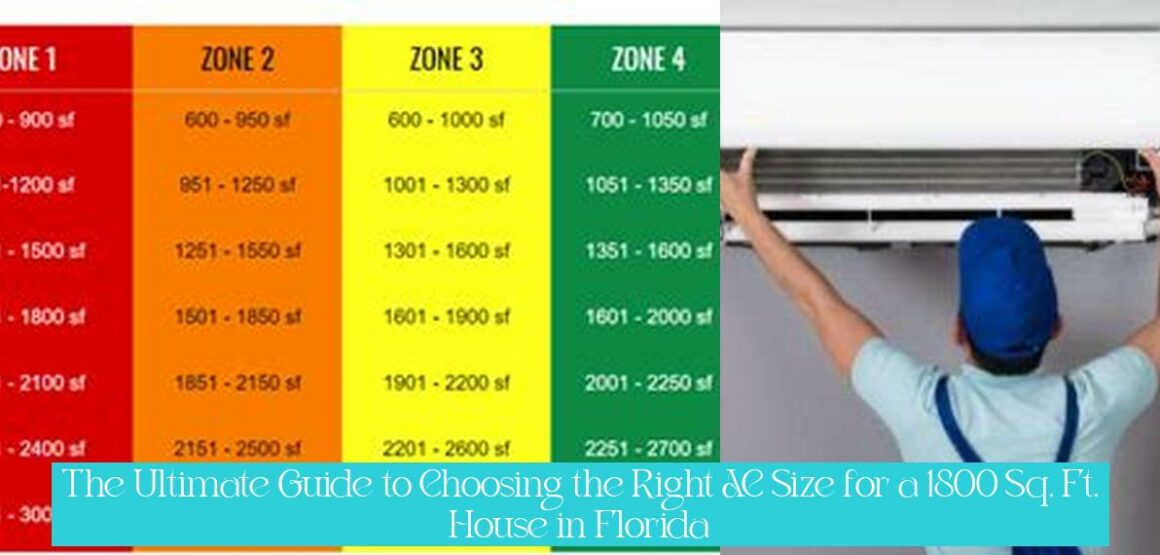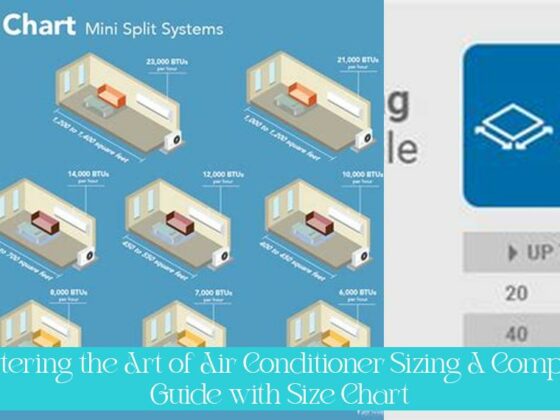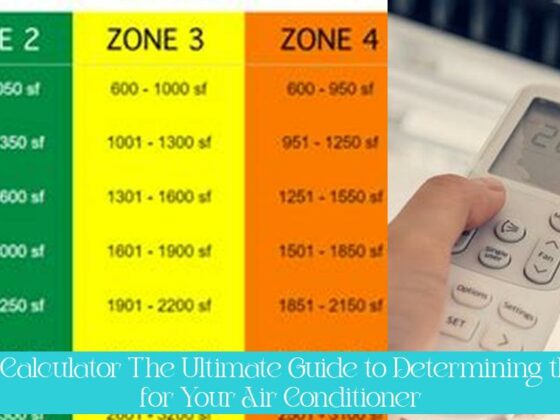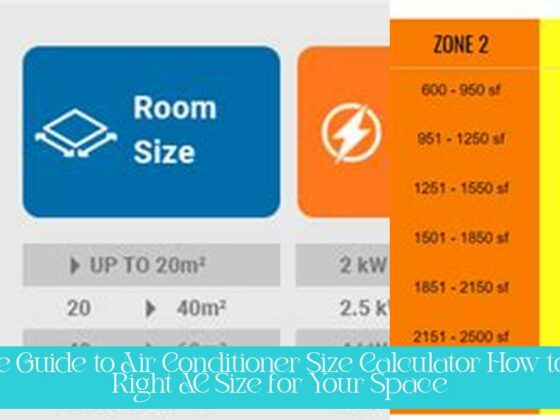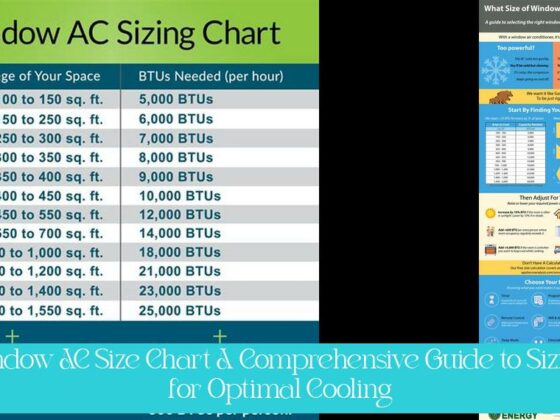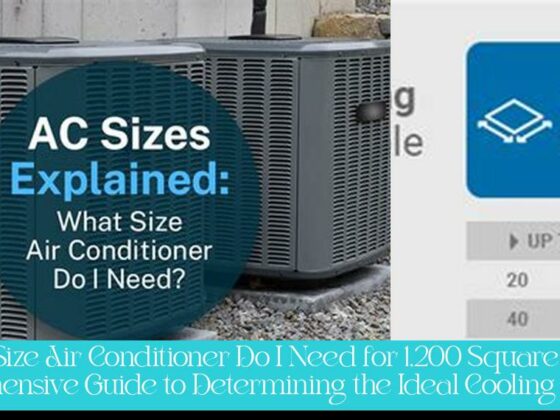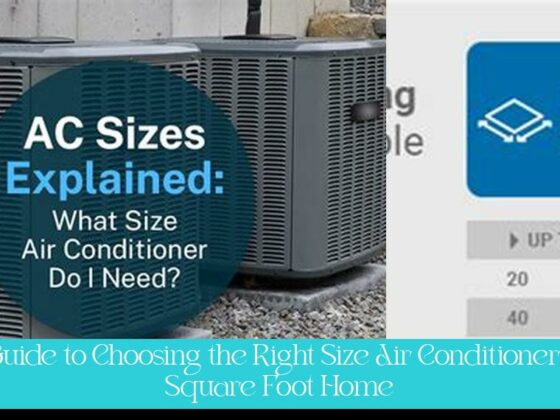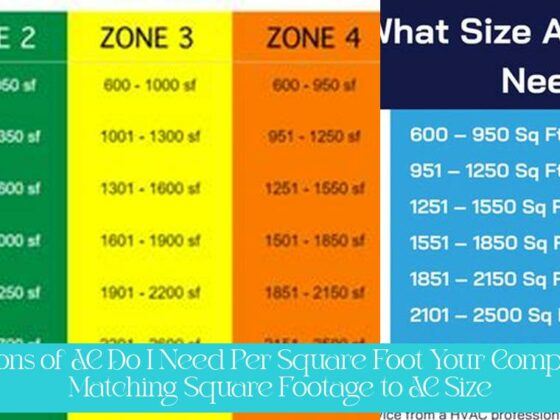Struggling to find the perfect AC size for your 1800 sq ft Florida home? Don’t sweat it – we’ve got you covered! Choosing the right air conditioner is crucial for keeping your cool in the Sunshine State. From AC size calculators to expert recommendations, this comprehensive guide will help you navigate the ins and outs of finding the ideal cooling solution for your space. So, buckle up and get ready to discover the perfect fit for your home sweet home!
Key Takeaways
- In Florida, for a 1800 sq ft house, a 3-ton air conditioner is recommended based on the AC size chart.
- For a 1800 sq ft house in Florida, a 3.5-ton AC unit is suitable, according to the AC unit sizing calculator.
- It is advisable to consult a certified HVAC technician to determine the most suitable AC setup for any space, big or small.
- For a 1800 sq ft house in Florida, a 2.5-ton to 3-ton air conditioner is recommended based on the AC size calculator and HVAC guidelines.
- It’s important to avoid relying solely on rules of thumb, and instead, use AC size calculators or consult professionals to determine the appropriate AC unit size for a Florida home.
- When considering the size of an air conditioner for a 1800 sq ft house in Florida, it’s important to take into account the specific climate and cooling needs of the region.
Determining the Ideal AC Size for an 1800 Sq. Ft. House in Florida: A Comprehensive Guide
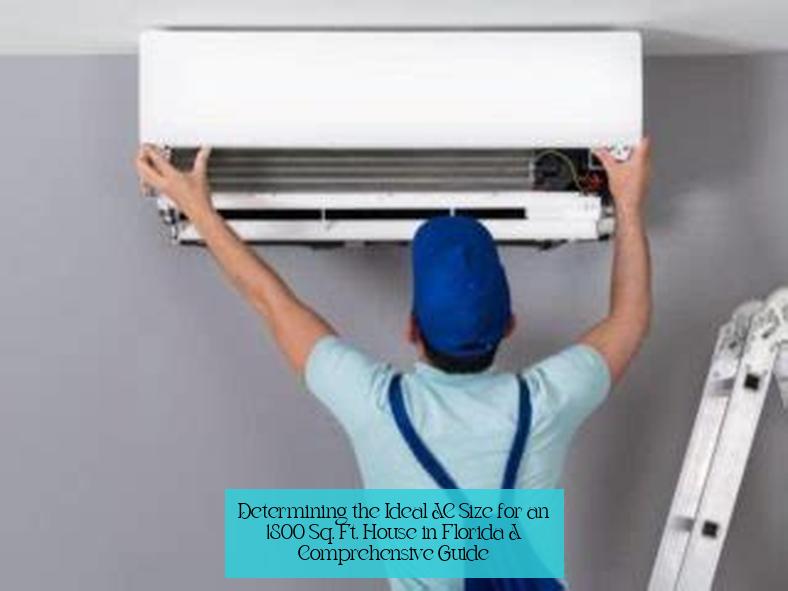
Summer in Florida can be brutal, with scorching temperatures and relentless humidity. As a homeowner, ensuring your home stays cool and comfortable during these sweltering months is paramount. Choosing the right size air conditioner (AC) unit is crucial for maintaining a comfortable indoor environment while optimizing energy efficiency. This comprehensive guide will delve into the factors that influence AC sizing for an 1800 sq. ft. house in Florida, providing you with the knowledge to make an informed decision.
Understanding AC Unit Sizing
The size of an AC unit is measured in tons, with each ton representing 12,000 British Thermal Units (BTUs) of cooling capacity. The BTU rating indicates the amount of heat the AC can remove from your home per hour. To determine the appropriate AC size for your home, you need to calculate the cooling load, which is the amount of heat that needs to be removed to maintain a comfortable temperature. This calculation considers various factors, including:
- Square footage: The size of your home is a primary determinant of the cooling load. A larger home requires a more powerful AC unit to effectively cool the entire space.
- Insulation: Proper insulation helps minimize heat gain from outside, reducing the cooling load. A well-insulated home may require a smaller AC unit compared to a poorly insulated one.
- Number of windows: Windows allow sunlight to enter your home, which can contribute to heat gain. Homes with a large number of windows or large windows may require a larger AC unit.
- Ceiling height: Higher ceilings create a larger volume of air that needs to be cooled, increasing the cooling load.
AC Size Recommendations for an 1800 Sq. Ft. House in Florida
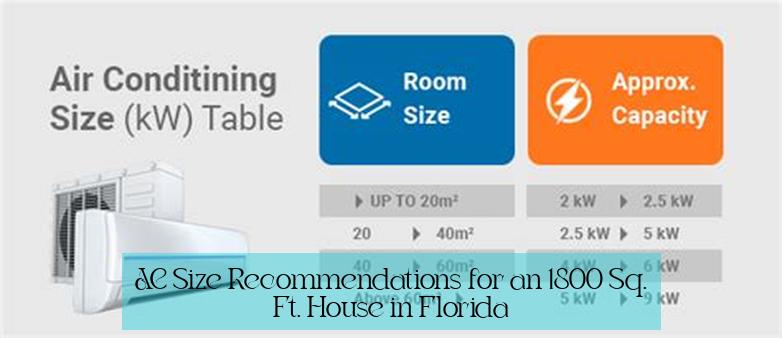
Based on the factors discussed above, the recommended AC size for an 1800 sq. ft. house in Florida ranges from 2.5 to 3.5 tons. Here’s a detailed breakdown:
- 2.5 tons: This size is suitable for homes with good insulation, a moderate number of windows, and standard ceiling heights. It can effectively cool an 1800 sq. ft. home in most areas of Florida.
- 3 tons: A 3-ton AC unit is recommended for homes with average insulation, a significant number of windows, or higher ceiling heights. It provides ample cooling capacity to maintain a comfortable temperature even during the hottest days.
- 3.5 tons: This size is ideal for homes with poor insulation, large windows, or very high ceilings. It offers maximum cooling power to ensure a cool and comfortable indoor environment in extreme heat conditions.
It’s important to note that these recommendations are general guidelines. The actual AC size required for your home may vary depending on specific factors. Consulting with a qualified HVAC technician is highly recommended to determine the most appropriate AC size for your individual needs.
Unlocking the 2.5 Times Monthly Rent Rule: A Renter’s Comprehensive Guide
Importance of Consulting an HVAC Professional
While AC sizing calculators and online resources can provide estimates, it’s essential to consult with a certified HVAC technician for accurate sizing and professional installation. Here are the benefits of seeking professional assistance:
More updates: Optimizing Comfort: What Size AC Do You Need for an 1800 Sq Ft House?
- Personalized assessment: HVAC technicians consider the unique characteristics of your home, including square footage, insulation, window size, and ceiling height, to determine the optimal AC size.
- Accurate calculations: Professionals use industry-standard calculations and software to ensure precise sizing, preventing oversized or undersized AC units.
- Proper installation: Installing an AC unit is a complex task that requires specialized knowledge and equipment. A qualified technician ensures proper installation, maximizing efficiency and minimizing the risk of costly repairs.
- Warranty and maintenance: Many HVAC technicians offer warranties on their work and provide ongoing maintenance services to keep your AC unit operating at peak performance.
Investing in a professional AC sizing and installation service may seem like an additional expense, but it’s a worthwhile investment that can save you money and headaches in the long run. By ensuring the right AC size and proper installation, you can enjoy a comfortable and energy-efficient home for years to come.
Q: What factors should I consider when determining the ideal AC size for my 1800 sq. ft. house in Florida?
A: Factors to consider include the square footage of your home, the level of insulation, the number and size of windows, and the ceiling height, as these impact the cooling load and, consequently, the required AC size.
Q: How is the size of an AC unit measured?
A: The size of an AC unit is measured in tons, with each ton representing 12,000 British Thermal Units (BTUs) of cooling capacity. The BTU rating indicates the amount of heat the AC can remove from your home per hour.
Q: What is the recommended AC size for an 1800 sq. ft. house in Florida?
A: The recommended AC size for an 1800 sq. ft. house in Florida ranges from 2.5 to 3.5 tons, with a 3-ton AC unit being a common recommendation based on AC size charts and HVAC guidelines.
Q: Why is it important to avoid relying solely on rules of thumb when determining the appropriate AC unit size for a Florida home?
A: Relying solely on rules of thumb may not account for specific climate and cooling needs of the region. It’s advisable to use AC size calculators or consult professionals to ensure the most suitable AC setup for any space, big or small.
Q: What is the significance of insulation when determining the ideal AC size for a home?
A: Proper insulation helps minimize heat gain from outside, reducing the cooling load. A well-insulated home may require a smaller AC unit compared to a poorly insulated one.
Q: How can I calculate the cooling load for my 1800 sq. ft. house in Florida?
A: To calculate the cooling load, consider the square footage of your home, the level of insulation, the number and size of windows, and the ceiling height. These factors influence the amount of heat that needs to be removed to maintain a comfortable temperature.
